
Person Compares The Danish Parliament To The US Congress, Illustrates How Different These Two Are
In 2021, only 25% of Americans approve of the way Congress is handling its job (71% disapprove of it and 4% have no opinion). To say the country isn’t happy with its legislature would be an understatement.
So the question is, how can it improve?
Michael Grunwald, a senior staff writer for POLITICO Magazine and editor-at-large of The Agenda, tried to answer it by comparing Congress to the Danish Parliament.
Grunwald turned to Twitter to describe an obscure hearing he had the pleasure to be a part of while visiting the Nordic country, and it becomes obvious pretty early on in his thread that the US could really learn a lot from it.
Image credits: Johan Wessman
“Americans are startlingly unhappy with Congress, and this is important because of what they perceive as an off-the-rails decision-making process,” Jon Krosnick, a professor of communication and of political science at Stanford who has studied the political attitudes of the American public for almost 40 years, said.
At a time of sharp disagreements between Democrats and Republicans, there is one thing Americans can agree on: they believe that elected officials are not paying enough attention to the general public.
Image credits: MikeGrunwald
Working with the Associated Press-NORC Center for Public Affairs, Krosnick and his collaborators from Stanford and the University of California, Santa Barbara, interviewed a nationally representative sample of 1,021 American adults in 2015 and a similar sample in 2017. Despite the change to a unified government under a new president, Americans’ views of congressional decision-making remained the same.
“A thoughtful, responsible legislator can consider a wide range of considerations when making voting decisions, and we set out to understand how Americans perceive that decision-making process and how Americans want that decision-making to be done,” Krosnick said.
Image credits: MikeGrunwald
Image credits: MikeGrunwald
The researchers discovered that there is a perception among the American public that lawmakers are influenced too much by wealthy people, the people, and organizations who helped them win their elections, the people who voted for them, and their own political parties.
Image credits: MikeGrunwald
Image credits: MikeGrunwald
Those surveyed believe that the most important factor that should guide representatives’ voting decisions is the general public’s wishes. 80% of respondents wanted representatives to pay substantial attention to the general public when making decisions about how to vote and 57% ranked the opinions of the general public as meriting the most attention of any source of influence.
Image credits: MikeGrunwald
Image credits: MikeGrunwald
But only 28% think that their representatives actually paid substantial attention to the general public’s views. Moreover, 70% of respondents perceive that elected officials pay substantially more attention to the preferences of campaign donors and economic elites than they do to the general public.
Image credits: MikeGrunwald
Image credits: MikeGrunwald
“When people talk about draining the swamp and corruption, they are really talking about decisions being made based on the wrong criteria. I hope that if legislators choose to be more transparent about their decision-making in the future and do so more as the public wants, the country might say, ‘Washington is not as swampy as I thought,'” Krosnick explained.
Image credits: MikeGrunwald
Image credits: MikeGrunwald
As for Denmark, the country’s politics are all about consensus. There are representatives of 14 parties in the Folketing (also known as the Danish Parliament in English) and since 1909 no party has had enough representatives to rule entirely on its own. Instead, multiple parties put together a ruling coalition. Each year, the Folketing considers 200-300 proposed bills. The heads of ministries prepare most bills, but members of Parliament can also propose legislation. The legislative process is designed to provide time for deliberation. Standing committees discuss the proposals and consult interest group representatives, scholars, and other external experts.
Here’s what people said after reading Grunwald’s thread
Image credits: tonyfrontier
Image credits: LsfarmLw
Image credits: julienewman64
Image credits: FaenrikStaal
Image credits: WhalesJose
Image credits: GentleGiantDK
Image credits: PitkinDan
Image credits: dont_breathe_
40Kviews
Share on FacebookMeanwhile in Washington DC, USA: " After having presented all the facts and evidence that Donald Trump did incite to a revolt with the only aim to disrupt a democratic process, do you agree that he should face the consequences? " 43 Republicans: "No, no, we don't think that a terrorist who still declares that he has plans to destroy our democracy, should be prosecuted for a clear act of terrorism. "
Hahahaha - "We need to do something to Denmark so they get pissed enough to invade" 😅. While I, as a Dane, appriciate the invitation to splay our ways onto America - have you seen the size of us? 😁
I wouldn't put it past the retards in the US CONgress to want to invade Denmark. They just need to hear the word "Danish" and they'll be wanting pastries.
Load More Replies...Sadly I think the Danes are outliers. They have a political system that is sensible, works and is unsullied by corruption. They have a much more freedom of their press than in the US and have a higher happiness index than most countries too. They are wealthy but socially caring (what Americans would call 'socialist') We should all take a lesson from them..
Meanwhile in Washington DC, USA: " After having presented all the facts and evidence that Donald Trump did incite to a revolt with the only aim to disrupt a democratic process, do you agree that he should face the consequences? " 43 Republicans: "No, no, we don't think that a terrorist who still declares that he has plans to destroy our democracy, should be prosecuted for a clear act of terrorism. "
Hahahaha - "We need to do something to Denmark so they get pissed enough to invade" 😅. While I, as a Dane, appriciate the invitation to splay our ways onto America - have you seen the size of us? 😁
I wouldn't put it past the retards in the US CONgress to want to invade Denmark. They just need to hear the word "Danish" and they'll be wanting pastries.
Load More Replies...Sadly I think the Danes are outliers. They have a political system that is sensible, works and is unsullied by corruption. They have a much more freedom of their press than in the US and have a higher happiness index than most countries too. They are wealthy but socially caring (what Americans would call 'socialist') We should all take a lesson from them..

 Dark Mode
Dark Mode 

 No fees, cancel anytime
No fees, cancel anytime 






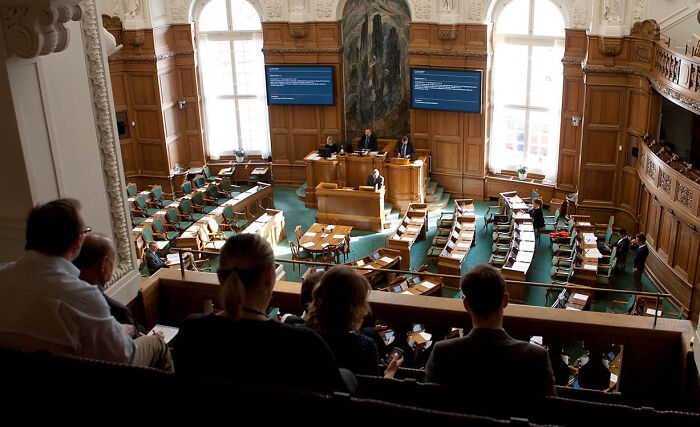
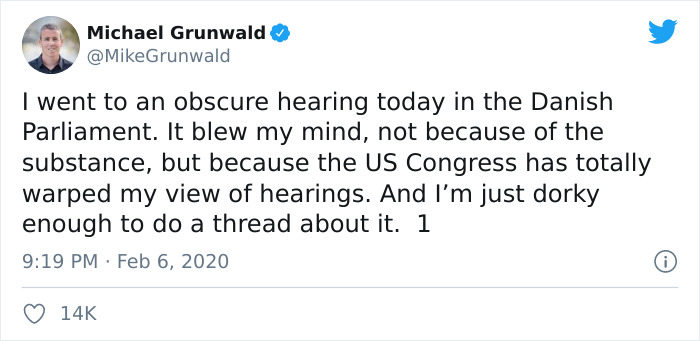
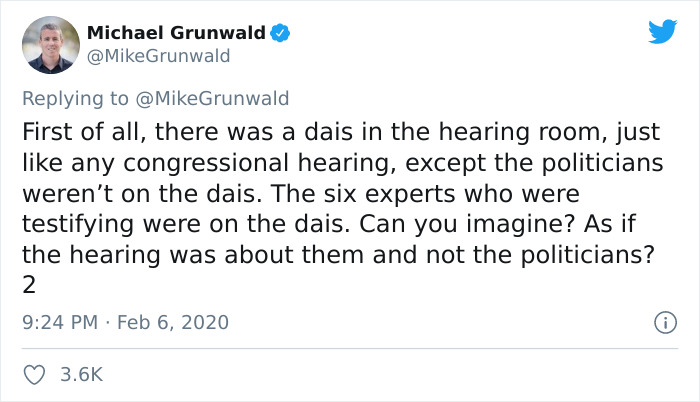


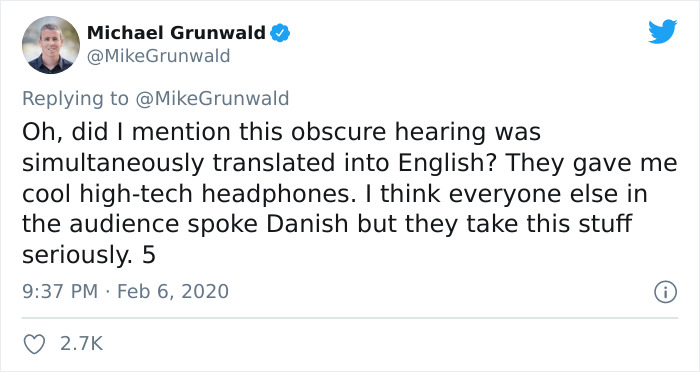



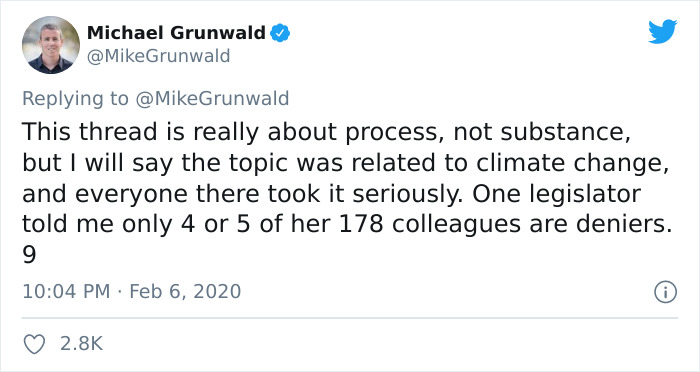


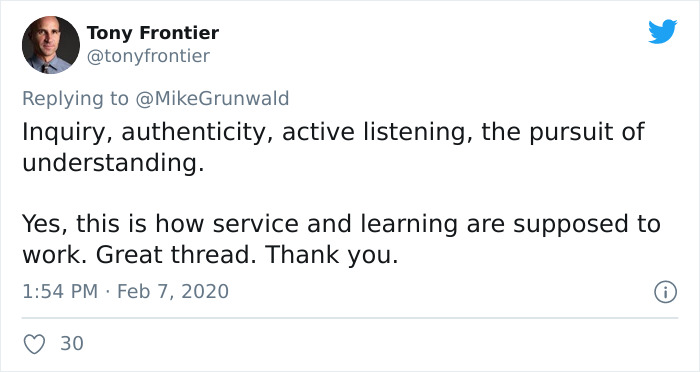




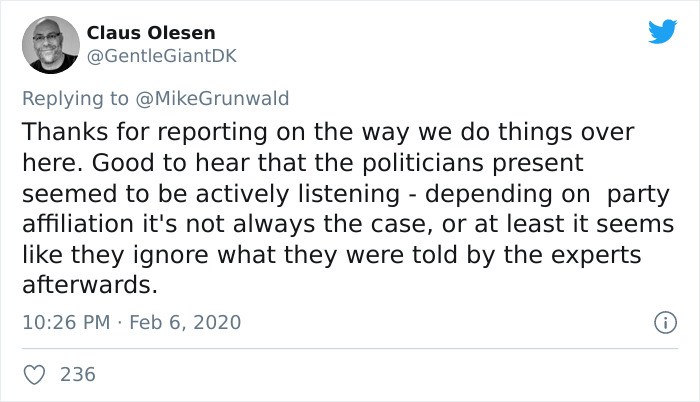


















































166
53